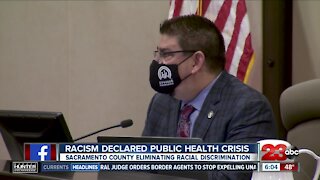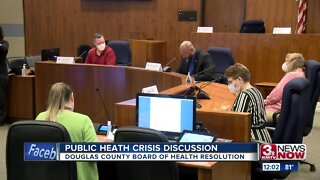Premium Only Content

Obesity : A Public Health Crisis
OBESITY HAS BECOME A public health crisis in the United States. The medical condition, which involves having an excessive amount of body fat, is linked to severe chronic diseases including type 2 diabetes, cardiovascular disease, high blood pressure and cancer. It causes about 1 in 5 deaths in the U.S. each year – nearly as many as smoking, according to a study published in the American Journal of Public Health.
What causes obesity?
Obesity occurs when a person takes in more calories than he or she burns through normal daily activities and exercise, according to the Mayo Clinic. It is not simply a matter of over-indulgence or a lack of self control, obesity researcher Dr. George Bray said at the first annual U.S. News Combating Childhood Obesity summit, held at Texas Children's Hospital in May.
"Obesity isn't a disease of willpower – it's a biological problem," he said. "Genes load the gun, and environment pulls the trigger."
Certain scientific and societal factors – including genetics, the increased consumption of processed foods and sugar-sweetened beverages, and some medications and medical conditions – can increase a person's risk of becoming obese. Age and pregnancy can also trigger weight gain.
Diet has an important connection to obesity. Studies show the amount of soybean oil Americans consume spiked in the 1960s and 1970s, most likely as highly processed foods became popular, and American adults and children started to weight more around that time, Bray said.
"The fats in our food supply may well be playing a part in our inability to regulate" food intake, Bray said at the obesity summit. Consumption of sugary soft drinks also skyrocketed between 1950 and 2000, he pointed out, as Americans tripled the amount of sweet beverages they drank each year.
Artificial sweeteners have also been linked to obesity. A study presented at the 2018 Experimental Biology meeting suggests artificial sweeteners alter how bodies process fat and obtain energy.
"Despite the addition of these non-caloric artificial sweeteners to our everyday diets, there has still been a drastic rise in obesity and diabetes," one of the study's authors, Brian Hoffmann, assistant professor in the department of biomedical engineering at the Medical College of Wisconsin and Marquette University, said. "In our studies, both sugar and artificial sweeteners seem to exhibit negative effects linked to obesity and diabetes, albeit through very different mechanisms from each other."
How is obesity treated?
common treatments include eating more healthy foods, incorporating more physical activity and changing other habits, such as taking the stairs instead of the elevator. Developing a healthy eating plan with fewer calories, setting realistic and measurable goals, participating in formal weight-management programs
to know more about weight-management programs send me a message at this e-mail : C.healthcare.society@gmail.com
-
 0:44
0:44
WXYZ
4 years agoRacism Public Health Crisis
298 -
 0:25
0:25
KERO
4 years agoRacism declared public health crisis in Sacramento County
863 -
 2:24
2:24
WCPO
4 years agoAfter declaring racism a public health crisis, county working toward change
1351 -
 1:03
1:03
Just the News
4 years agoNevada governor declares racism a public health crisis
5.13K1 -
 1:42
1:42
WCPO
4 years agoCity officials propose declaring racism a public health crisis
3016 -
 1:26
1:26
WTMJMilwaukee
4 years agoBiden: Racism is a national public health crisis
2302 -
 1:35
1:35
Newsy
4 years agoBoston Mayor Declares Racism A Public Health Crisis
4004 -
 2:12
2:12
WMAR
4 years agoA growing push to declare racism a public health crisis
1233 -
 1:20
1:20
KMTV
4 years agoDouglas Co. Board of Health declares racism a public health crisis
23 -
 2:03
2:03
WXYZ
4 years agoGov. Whitmer declares racism as public health crisis in Michigan
722